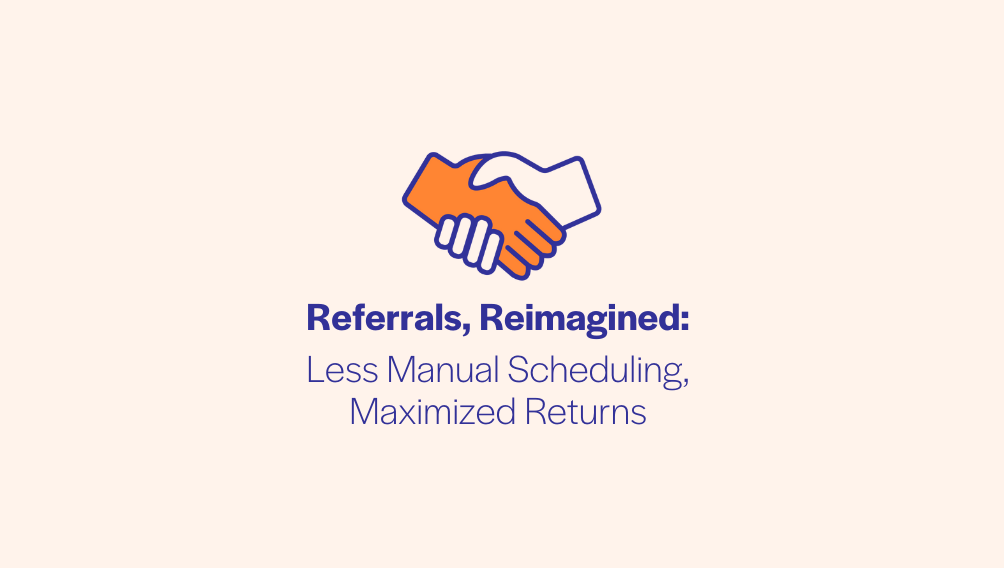Referrals, Reimagined: Less Manual Scheduling, Maximized Returns

It’s the dream come true: your specialty practice is highly regarded in your region, and you’ve built a reputation and the relationships that result in an opportunity to help a patient in your distinct area of expertise.
Of course, you don’t know this yet. This patient, all the way across town, leaves their primary care provider’s office clutching a piece of paper. That single sheet is everything: the referral. But there’s only a 35% chance that you’ll ever realize this moment of opportunity took place, when the referral results in a completed appointment. It’s far too likely that the patient will end up following another path instead.
How much is this costing your practice?
Why does patient drift? It could be based in process: patients want easy scheduling. If they can make an appointment online, great. But oftentimes, new patient workflows are complex and require call-ins. It’s too easy to get lost before the process begins, be it to long hold times at an overworked call center, or phone tag with an office staff. In fact, 45% of referrals resulted in no communication back to the patient.
Once the appointment is scheduled, the wait begins… and the longer the wait, the greater the odds of patient cancellation or no-showing. Maybe they feel better and no longer feel the need for care. But it’s also possible that they are seeking faster service elsewhere… or that, by the time their appointment rolls around, they’ve forgotten completely.
It’s challenging to broadly quantify the cost of these missed opportunities. But it’s safe to say that accounting for wasted/redundant staff labor, no-shows, patient appointment leakage, and lost opportunities for procedures has occurred will add up to big losses.
We suggest three technology-based pillars for successfully changing outcomes:
- Provide patients with a direct link to scheduling and provider
Research shows that most patients want convenient ways to contact their doctor’s office, but barriers such as lack of computer availability and reluctance to change habits can be barriers to portal adoption. Yet even older generations are texting. Rather than guiding patients towards friction and roadblocks, send scheduling opportunities directly into their hands. Increase the likelihood of making appointments by sending patients an SMS referral notification when their referral is created. When the message comes from a trusted phone number, the patient is more likely to engage – not just by clicking through to make an appointment by text alone (no need for a patient portal), but by sustained interaction and conversational messaging with their healthcare provider.
- Keep patients engaged throughout the lead-in time to appointment, resulting in increased retention and fewer no-shows with minimal staff workflow
Enterprise EHRs often offer a singular appointment reminder with boilerplate language. While useful, this single touchpoint doesn’t offer the same reassurance as customized guardrails. A patient engagement platform enables tailored workflows with cadenced reminders sent to patients. Leveraging insights, such as those provided by Bedrock, helps practices determine evidence-based communication practices to drive results. The goal? The patient feels included and is less likely to migrate their care.
- Fill appointment gaps when patient plans change
When life happens to patients, it’s often accompanied by no-shows… and empty appointment windows. With a technology solution that automates the processes of: adding scheduled patients to a wait list, sharing cancellation opportunities, immediately offering newly available appointment times to canceling patients, and rescheduling the slot.
This cuts down on appointment lag for patients on the waitlist and quickly fills available slots – a win-win.
Bonus points if the referral loop can be written back within the native EHR, ensuring that all parties are aware that care has been received.
Managing patients’ health can be challenging, but the referral process doesn’t have to be.
Want to calculate your savings with Luma Health? Try our free ROI Calculator.